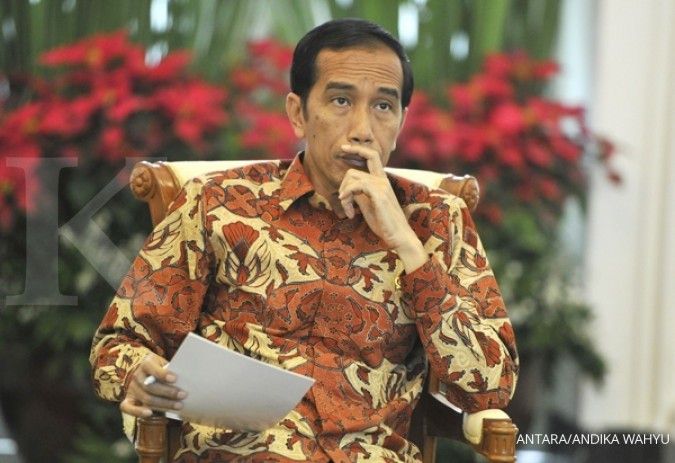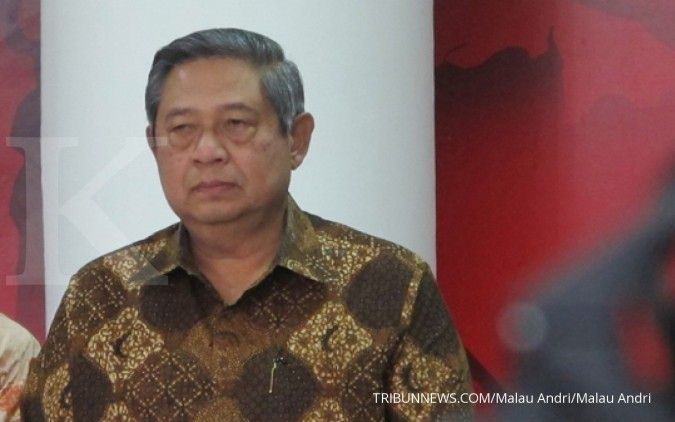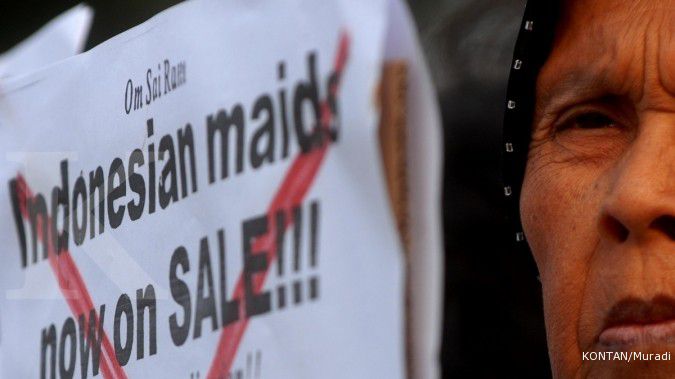Six months into the administration of President Joko “Jokowi” Widodo, a second group of death-row inmates found guilty of smuggling narcotics is slated for execution probably as early as Tuesday.
The first round was carried out on Jan. 18, during which six inmates from Indonesia, the Netherlands, Brazil, Nigeria, Vietnam and Malawi were killed by firing squad.
The upcoming executions will be the first time since the reform movement of 1998 that police’s Mobile Brigade (Brimob) personnel will have to pull the trigger on 10 inmates at the same time on the prison island of
Nusakambangan in Central Java.
Here are the stories of how drugs led 10 individuals, originating from five different continents, into the abyss in Indonesia.
1. Amid the widespread pleas for clemency for foreign citizens listed in the upcoming executions, defense and support for Zainal, 50, has gone largely unheard. No street marches or viral campaigns in social media have been held for him.
On 21 Dec. 2000, Zainal was arrested at his residence in Palembang, South Sumatra, for the possession of 58.7 kilograms of marijuana, the possession and consumption of which has been declared legal in several developed countries.
He now faces the supreme punishment amid recent scientific studies and implicit acknowledgment by US President Barrack Obama indicating that marijuana has health benefits, when used in a controlled manner.
Zainal was initially given a 15-year prison term on drug trafficking charges but had his sentence increased to the death penalty after the Palembang Administrative Court filed an appeal in 2001. This sentence was confirmed by a Supreme Court cassation the following year.
President Jokowi has shown no mercy having rejected Zainal’s appeal for clemency earlier in the year.
He had filed for a judicial review of the case in 2005 but it was only picked up recently, with the Attorney General’s Office (AGO) currently awaiting a response from the Supreme Court on whether or not to go ahead with the execution. The AGO is expected to hear from the court on Monday.
Although he is still awaiting the Supreme Court’s decision, Zainal was recently transferred from the Pasir Putih Prison in Nusakamba-ngan to an isolation cell in Besi Prison in the same complex.
Zainal received notification of his impending execution on Saturday, and is expecting his family to visit and pray together on Monday morning.
2-3. Andrew Chan, 31, and 34-year-old Myuran Sukumaran were apprehended by customs authorities along with seven other Australians on April 17, 2005, at Ngurah Rai International Airport in Badung, Bali, for attempting to smuggle 8.3 kg of heroin out of the country into Australia.
Identified as ring leaders of the so-called Bali Nine, Chan and Sukumaran were both sentenced to death on Feb. 14, 2006, while the rest of the group — Si Yi Chen, Michael Czugaj, Renae Lawrence, Tan Duc Thanh Nguyen, Matthew Norman, Scott Rush and Martin Stephens — either received 20 years in prison or life sentences.
The two were detained in Kerobokan Prison and went through several rehabilitation programs involving art and computer workshops, cooking classes and tennis lessons.
In 2010, Chan and Sukumaran filed an appeal against their sentences. Both appeals were rejected in July and June, respectively, of the following year. At the end of last year, the President rejected Sukumaran’s plea for clemency, while Chan’s appeal was rejected on Jan. 22.
The pair lost another chance to avoid the death penalty in a second case review after they were both rejected by the Denpasar District Court in February.
4. Atlaoui, 51, was arrested after officials broke up a secret facility for producing ecstasy in Cikande, Tangerang, Banten, on Nov. 11, 2005. He was found guilty of possessing 138 kg of crystal meth, 290 kg of ketamine and 316 drums of precursor substances. He was sentenced to death two years later.
Imprisoned on Nusakamba-ngan prison island since 2007, the father-of-four has always denied the charges, saying he was installing industrial machinery in what he thought was an acrylics factory. As many as 12 other people were involved in the same case as Atlaoui, nine of whom received the death penalty at the Supreme Court.
Atlaoui’s appeal for clemency was rejected by Jokowi late in 2014, prompting him to lodge a case review with the Supreme Court for the first time since he was detained.
The court rejected the review last week. A panel of judges stated in their ruling that Atlaoui had “been found guilty of distributing, transferring and brokering drug transactions with evidence including pure heroin”.
Atlaoui was granted a temporary reprieve a few days ago, with the AGO claiming that there was an outstanding legal complaint in his case.
5. On July 31, 2004, Gularte, 42, was arrested by the authorities at Soekarno-Hatta International Airport in Tangerang, Banten. The Brazilian was caught smuggling 19 kg of heroin encased in his surfboard and was found guilty at Tangerang District Court on Feb. 7, 2005. He never lodged an appeal to a higher court.
His plea for clemency was rejected by Jokowi on Jan. 5.
Gularte’s case garnered much attention from rights activists due to the fact that he has been diagnosed with a mental illness on several occasions. Because of his illness, NGOs and civil society groups have maintained that Gularte was unfit for trial and have demanded a reprieve.
According to a medical examination report from the Cilacap general hospital dated Feb. 11, 2015, Gularte was confirmed as suffering from schizophrenia. Another report — a medical certificate signed by neurologist Erasto Cichon in 2004 — stated that Gularte had been suffering from cerebral dysrhythmia since 1982, causing him to commit involuntary acts.
Attorney General M. Prasetyo, however, has insisted that death row convicts suffering from mental conditions must still be executed as there are currently no specific regulations exempting them from death.
6. Nwolise, 47, otherwise known as Mustofa, was caught by the National Police’s narcotics directorate in 2003 for attempting to smuggle 1.2 kg of heroin into the country. He was found guilty by Tangerang District Court and was sentenced to death a year later.
Nwolise’s plea for clemency was rejected by Jokowi earlier this year.
Even after he was detained, he was repeatedly questioned by the National Narcotics Agency (BNN) for continuing to operate a drug ring from within the confines of prison.
On Nov. 27, 2012 he was found to have dealt drugs while in detention in Batu prison on Nusakambangan Island. A year later, he was found to be dealing again in Pasir Putih prison in the same prison complex.
He was returned from police custody to the Nusakambangan authorities on Feb. 26 and placed once more in Batu prison, but in an isolation cell.
7. Veloso, 30, who used to work as a housemaid in the Philippines, was arrested with 2.6 kg of heroin at Adisucipto International airport in Yogyakarta on April 25, 2010. Sleman District Court sentenced her to death on Oct. 11, 2010.
She challenged the verdict at the Yogyakarta High Court but to no avail after the court rejected her appeal on Dec. 23, 2010.
The Supreme Court confirmed her sentence on May 31, 2011.
Jokowi rejected clemency for the mother-of-two last December. On March 16, the Supreme Court rejected her first case review.
8. Anderson, 50, was caught in 2003 at his lodging in Kelapa Gading, North Jakarta, where the authorities found him to be in possession of 50 grams of heroin.
He was sentenced to death at his trial at the North Jakarta District Court, a sentence upheld by the Supreme Court in 2004.
In March, Anderson lodged a case review for the first time since his plea for clemency was rejected by Jokowi at the beginning of the year.
Anderson’s legal team sought to reduce his sentence by referring to a previous case, in which Nigerian death row convict Hillary K. Chimezie, who was caught with 5.8 kg of heroin, had his sentence reduced to 12 years. Anderson’s case review was dismissed by the judges as he had already asked for clemency, meaning that he admitted his guilt.
9. Oyatanze, 45, was apprehended by customs as he attempted to smuggle 1.15 kg of heroin from Pakistan. He was caught at Soekarno-Hatta International Airport in Tangerang, Banten, on Jan. 28, 2001.
He had been involved in the garment business in 1999, travelling to Indonesia to buy clothes and then reselling them in Nigeria.
The business collapsed, however, and Oyatanze became heavily indebted, forcing him to accept the job of bringing “a product” from Pakistan to Indonesia, which he claimed to have realized only later was heroin.
On Aug. 13 of that year, Tangerang District Court handed Oyatanze the death penalty and this was confirmed by the Supreme Court on Aug. 28, 2002.
Oyatanze’s application for judicial review was also rejected. He admitted to his crime and pleaded for clemency, which was eventually rejected by Jokowi on Feb. 5.
10. Salami, 42, was arrested at Juanda International Airport in Surabaya, East Java, in 1999 as he attempted to smuggle 5.2 kg of heroin. However, he claimed that his real identity was Jamiu Owolabi Abashin. He was sentenced to life in prison in 1999, which was reduced to 20 years on appeal. Prosecutors challenged the sentence at the Supreme Court, which in 2006 sentenced Salami to death.
He pleaded for clemency in September 2008 only to have it rejected by Jokowi earlier this year. (Haeril Halim)
/2015/02/16/1417022424p.jpg)














